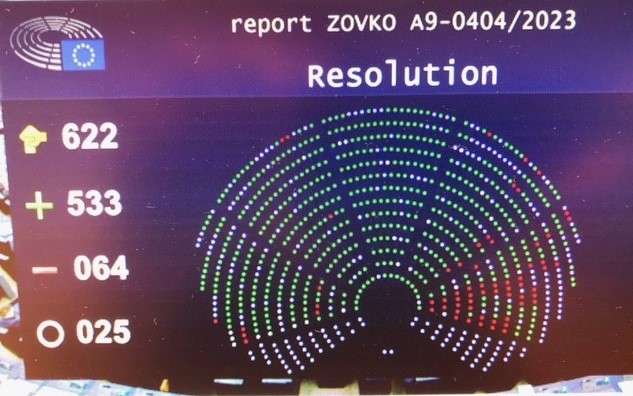If the EU wants to maintain its global diplomatic strength globally, MEPs warn it will have to invest more in conflict prevention.
The EU still does not have the necessary confidence or tools to develop its full mediation potential in areas of strategic importance, MEPs say in a new report on the role of preventive diplomacy in tackling frozen conflicts around the world.
The report stresses that in the current volatile geopolitical situation, the EU needs to respond in appropriate ways, such as enhancing its visibility in partner or other third countries. Otherwise, anti-European narratives in the EU’s immediate neighbourhood and third countries are likely to prosper. A reliance on political, diplomatic or military strategies is inadequate for conflict prevention, MEPs argue, and there is a need for a more comprehensive and ambitious engagement strategy.
The EU would, if it took this route, be able to defend human rights, equality, freedom, democracy, and the rule of law. It would be able to support multilateralism, utilise and expand cultural heritage protection, reconciliation and mutual understanding, and intercultural and interreligious dialogue in conflict and post-conflict areas.
MEPs urge the EU to use diplomacy and cooperate with multilateral platforms for peace to strengthen and consolidate relationships before conflicts arise, especially the UN’s Peacebuilding Commission, OECD’s International Dialogue on Peacebuilding and Statebuilding and the OSCE’s Conflict Prevention Centre.
More accountability for special representatives
The report text says it is crucial to consider local, cultural and historical contexts when appointing EU special representatives and envoys to avoid sparking controversy in conflict regions and to strengthen the perception of these representatives as honest brokers. MEPs emphasise the need for a thorough assessment of the work of special representatives¸ through scrutiny in the European Parliament. This scrutiny would include analysis of their initiatives, their impact, and their contribution to preventive diplomacy, conflict resolution process or the implementation of EU-brokered ceasefire agreements.
EU to tailor its assistance to the particular context of the receiving countries
MEPs added that the EU should increase its ambition when providing state-building assistance by tailoring it to the cultural, historical and political context of the receiving country.
Among others, the strengthened Peace, Stability and Conflict Prevention thematic programme of the Neighbourhood, Development and International Cooperation Instrument (NDICI – Global Europe) will enable the European Union to better fund actions to promote peace, stability and conflict prevention.
MEPs reiterate the importance of recognising the role of local, regional, national organisations, stakeholders, civil societies in member states as key players in effective conflict prevention, mediation, and resolution, including the engagement of more women and young people in these processes.
“Conflict can be easily reignited if the seed of hope does not supplant the embers of hatred that are left behind. Rebuilding bridges and finding solutions to frozen conflicts and unhealed grievance is the way to prevent future wars and tragedies”, the rapporteur Željana Zovko (EPP, Croatia) said.
The report was adopted by 533 votes in favour, 64 against and 25 abstentions.

